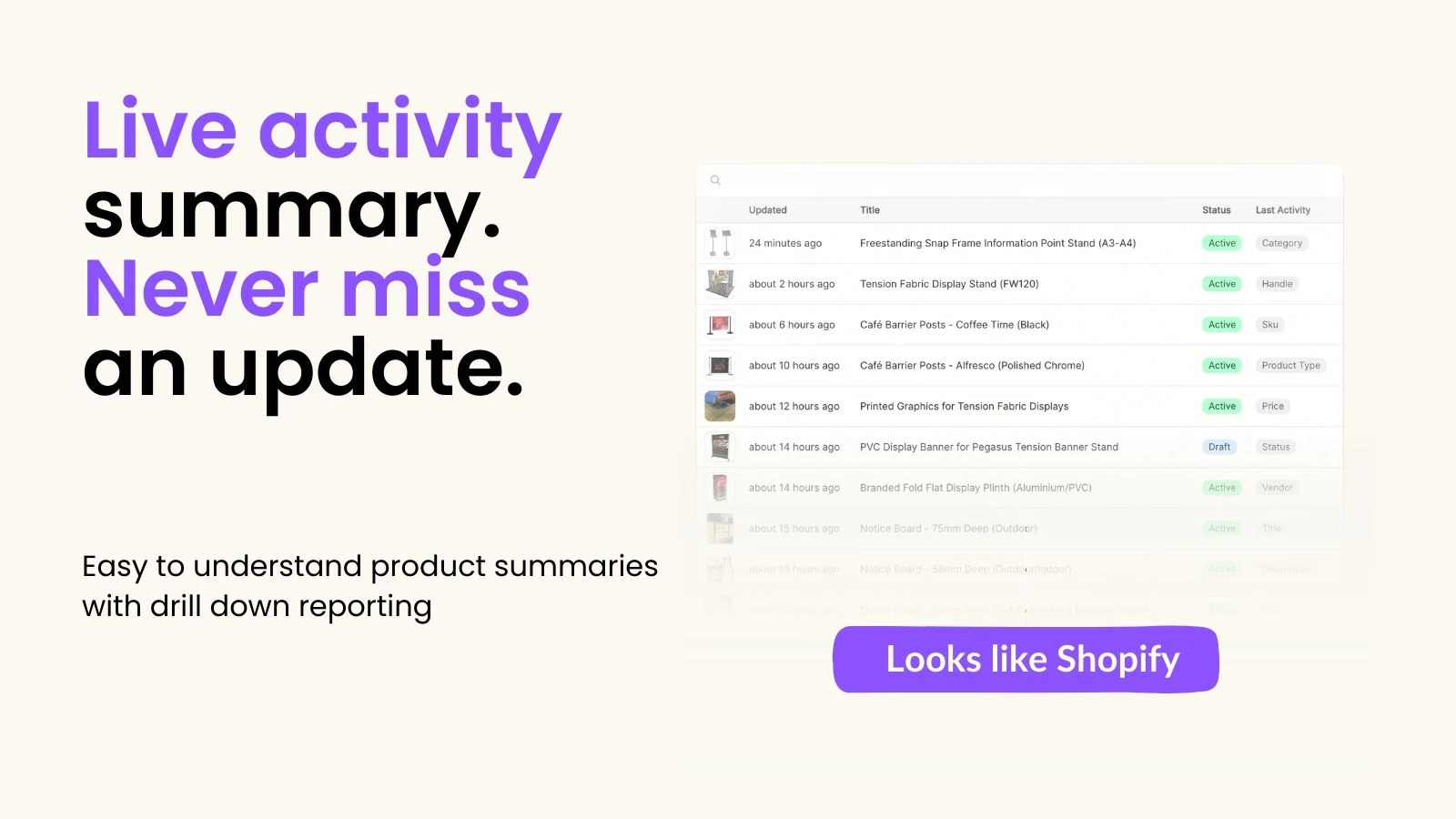Histora: A Shopify history tracking app that solves product management pain points

The problem
Ashley Coker runs a software consultancy that has worked with everyone from startups to corporate banks, but when he took over his family business, he encountered a frustrating gap in Shopify that his technical background couldn't ignore.
"One thing that always frustrated me was not being able to see the history of changes," Ashley explained. "People make edits and you have no real clue as to what's going on – pricing, descriptions, imagery, all that stuff."
For any store with more than a handful of products and a few team members, tracking changes becomes a nightmare. Someone updates a price, tweaks a description, or changes product imagery, but there's no record of what changed, when, or why. As a business owner trying to manage operations, Ashley found himself constantly asking his team what had been updated, often without getting clear answers.
The problem gets worse as stores scale. With multiple employees making changes across hundreds of products, understanding what's actually happening in your store becomes nearly impossible. Ashley realized that without visibility into product changes, store managers can't effectively oversee their operations or make informed decisions about their inventory and pricing strategies.
"As soon as you've got more than a handful of products, it becomes a total nightmare," Ashley noted. The lack of change tracking wasn't just an inconvenience – it was limiting his ability to properly manage and optimize his family business.
The solution
As an experienced software developer, Ashley knew he could solve this problem, but he didn't want to spend months building infrastructure. When he discovered Gadget, he found exactly what he needed to focus on the solution rather than the setup.
"When I saw Gadget, I was like, right, that's the final piece of the puzzle for me to just get going," Ashley shared. "I don't want to be messing around with logins and OAuth processes. If you're an experienced software developer, you've had to deal with this stuff so many times and it's just not interesting anymore."
Gadget's platform gave Ashley everything he needed out of the box: automatic Shopify integration, managed database, comprehensive logging, and production-ready infrastructure. This meant he could jump straight into building Histora's core functionality without worrying about the technical overhead.
"The biggest time saver was synchronization," Ashley explained. "You don't have to deal with any of the pagination and all that stuff that goes on with Shopify, and you can just treat it like a normal database without having to focus on where the data is or if it's in sync."
Using Gadget's framework, Ashley built Histora to track all product changes automatically – from pricing and descriptions to imagery and vendor information. But he went beyond simple tracking by adding the ability to attach notes to changes, creating context around why modifications were made.
The app compares product states and highlights exactly what changed, showing users precise differences like added text in descriptions or price adjustments. With Gadget handling the complex Shopify data synchronization and nightly reconciliations, Ashley never had to worry about missing changes or data inconsistencies.
Gadget's single browser tab approach also streamlined development. With automatic documentation generation and the AI assistant built into the interface, Ashley could quickly navigate the platform and build features efficiently. The ability to sync code locally while developing in the cloud gave him the flexibility to work how he preferred while maintaining all of Gadget's infrastructure benefits.
"You're able to develop locally in the cloud," Ashley noted, appreciating the platform's unique approach that combines the comfort of local development with all the benefits of a cloud platform.

The results
Building Histora with Gadget allowed Ashley to transform a frustrating business problem into a launched Shopify app in just six weeks of focused development time.
Key results:
- 6 weeks to go from a concept to launching on the Shopify App Store
- Complete feature set including change tracking, notes, and comparisons
- Professional infrastructure without months of setup and configuration
- Focus on business logic rather than technical overhead
- Confidence to expand with additional functionality planned
Rapid development and launch
After just six weeks of solid development time, Histora was ready to launch on the Shopify App Store. With such a tight turnaround time, Ashley could quickly validate the core features of the app while gathering enough insight and feedback to begin expanding its capabilities.
Normally, launching quickly would come at the cost of sophistication, but with Gadget, Ashley could build exactly what he had envisioned for Histora. By eliminating the need to build authentication, data synchronization, and hosting infrastructure, Ashley spent all of his energy solving the core problem behind his app. In just a few weeks, he achieved so much more than he initially expected.
The rapid deployment did more than let him go to market faster – it helped maintain momentum and pivot to adding enhanced features, performance optimizations, and advanced capabilities that his early validation revealed users wanted.
Within hours of installing Histora on his family business store, Ashley could see it working exactly as intended. "I could see that somebody did something and it was obvious they changed the description on a product. I could see the exact few words they added, so I didn't need to ask them."
"It's like any new tool. You've still got to learn it, but you can't get away from the fact that it's better to learn this and do it this way than trying to do it the boilerplate way," Ashley explained.
Professional confidence and reliability
Building on Gadget's infrastructure gave Ashley confidence that Histora would be reliable for other merchants. "It gives you the confidence that the lower-level stuff isn't gonna break, so you can focus on the actual functionality that you're delivering."
This reliability factor was crucial for launching a public app. Ashley didn't have to worry about data synchronization failures, server management, or scaling issues, because Gadget handled all of that automatically.
"Gadget does well to not try and be too opinionated about how you're gonna develop your solution. It just gives you access to the information you need," he explained. "It's more of a platform while being less opinionated about how to create the solution."
This flexibility, combined with features like different environments, comprehensive logging, and seamless source control integration, turned Histora into a professional development project rather than a constrained app-building exercise.
Focus on marketing and growth
With Histora built and deployed, Ashley can spend his time on marketing efforts and user acquisition rather than ongoing technical maintenance. The early feature validation at launch gave him confidence that the solution resonated with other merchants facing the same challenges he'd experienced.
"It gives you someone to hold hands with rather than forging ahead on your own," he noted about Gadget's ongoing support and infrastructure management.
This shift from development to marketing represents exactly the kind of business transformation that successful app launches require – moving from building to growing, with the assurance that the technical foundation will continue to scale reliably.
Foundation for future expansion
Because Gadget provided such a solid foundation, Ashley has had more time to focus on expansion and future features.
From the beginning, he was able to design Histora to work exactly as intended, and that has only driven him to continue building. He plans to create even more workflow tools to help store managers with things like systematically reviewing products, analytics for pricing trends over time, and management dashboards that provide insights into store maintenance patterns.
About the developer
Ashley Coker runs a software consultancy that has helped organizations from startups to corporate banks with everything from fintech solutions to digital cloud transformations. When he took over his family business, he brought his technical expertise to bear on e-commerce challenges, leading to the creation of Histora and a growing focus on Shopify app development.








